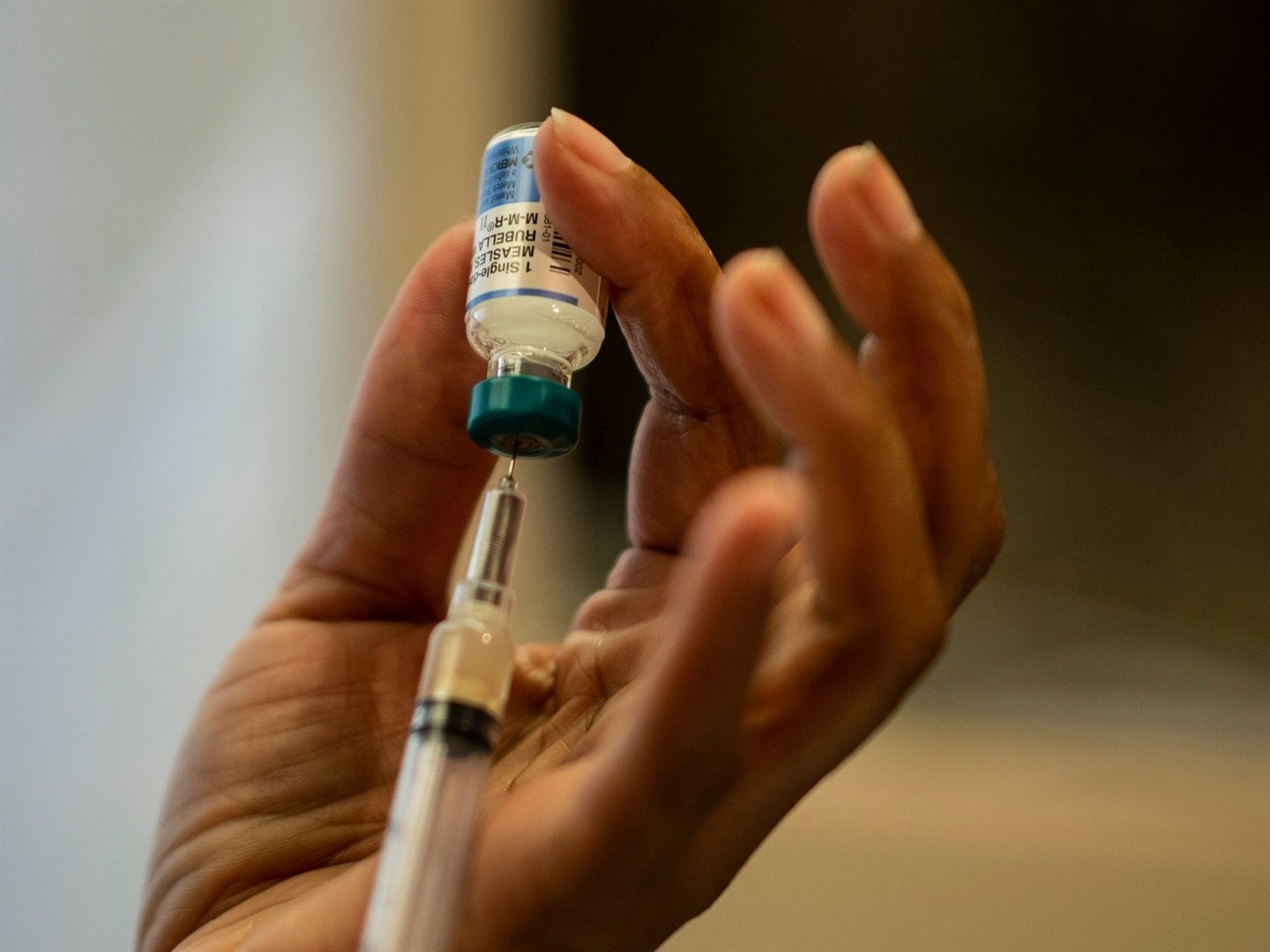
- South Africa now faces its third outbreak of a childhood disease in the last year, with the confirmation of mumps.
- While mumps is preventable through vaccination, children are not immunised against it in South Africa.
- The mumps outbreak comes on the back of a campaign to immunise children against measles.
South Africa's latest outbreak of the childhood disease mumps follows an outbreak of whooping cough and measles at a time when international organisations are sounding the alarm over growing vaccine hesitancy.
The National Institute for Communicable Diseases (NICD) confirmed an outbreak of mumps in South Africa on 11 May.
Mumps causes painful swelling of the parotid and/or salivary glands. People who have had mumps are usually protected for life against another mumps infection.
However, second occurrences of mumps occasionally happen.
The viral infection, predominantly affecting children between the ages of 5 and 9, can be avoided through vaccination.
However, the South African public healthcare sector does not vaccinate children against mumps because it is considered a "mild" illness, said the National Department of Health's Dr Lesley Bamford.
READ | 'Be alert to the signs and symptoms': Measles outbreak declared in Western Cape
According to the NICD, additional vaccination of the combination measles, mumps and rubella (MMR) vaccine can limit transmission during an outbreak in countries where mumps vaccination is universally available.
"As the MMR vaccine as an intervention is not universally available in South Africa, it is best to seek the advice of your local healthcare provider," the NICD said.
Bamford explained that the public sector only offers vaccination against measles. However, there are plans to introduce vaccination against rubella (German measles).
She added that mumps is considered a mild disease that can be prevented by isolating contagious patients.
"Based on the burden of disease and the increased cost of the MMR vaccine compared to the measles vaccine alone, or the measles and rubella vaccines, there are currently no plans to introduce the vaccination against mumps," Bamford said.
Bamford added that a flare-up of mumps and rubella cases was normal annually.
Want to discuss hotly debated topics with someone from across the world? Sign up for our global dialogue programme and get matched for a conversation
However, the current mumps outbreak – and increased cases in many other childhood illnesses – is most likely driven by a lowered population immunity created by mask-wearing, isolation and increased hand washing by the public during the Covid-19 pandemic.
"One issue that does concern us is that because of the timing, there has been some link between the mumps outbreak and measles vaccination. That there is any link is incorrect and misinformation," she said.
South Africa has been running a top-up vaccination programme after a measles outbreak started in Limpopo last year and spread to seven other provinces.
According to Bamford, the programme officially concluded in March but has been extended in some districts.
She said:
Professor Shabir Madhi – the dean of health sciences and professor of vaccinology at Wits University – said that while mumps can cause complications, especially in men who contract it for the first time late in life, it is not considered a "priority disease".
He added that mumps outbreaks tended to occur every spring, making this outbreak slightly unusual because it has started earlier than expected.
The outbreaks in childhood diseases point towards a systemic problem, Madhi said.
He said that vaccine coverage is far from even.
ALSO READ | Need for SA to establish vaccine manufacturing ecosystem for African continent - study
For instance, vaccines such as the MMR jab are available in the private sector but not in the public sector. In addition, some provinces are more susceptible to vaccine stockouts due to a lack of funding or poor management, decreasing access to vaccines.
"In South Africa, vaccination coverage can range from 60% to 90%. There's huge variability in terms of vaccine coverage, and this lends itself to localised outbreaks. Vaccination is the proverbial canary in the mine in terms of our healthcare system and is an indication of how robust our healthcare sector is," he said.
Madhi explained that during the Covid-19 pandemic, an "immunity gap" was established because interventions to prevent the spread of Covid-19 also prevented the transmission of other respiratory pathogens.
He said:
This lower population immunity can lead to outbreaks.
Madhi cautioned that vaccine hesitancy adds to the immunity gap.
Last month, Unicef released data that indicated that one in five children in South Africa is under-immunised and that there has been a 30% decline in confidence in childhood vaccines in South Africa.
Madhi said: "We need to be concerned, especially in the context of having a vaccine gap and children that are under-immunised. A decline in vaccination coverage lends itself to more outbreaks of illnesses such as measles or whooping cough."
Dr Jantjie Taljaard, head of the division of infectious diseases at Stellenbosch University, said it was too soon to tell if the most recent outbreaks were linked to post-Covid-19 vaccine hesitancy.
"It could be due to waning immunity, increased surveillance, or incomplete immunisation resulting from a lack of access to healthcare facilities during Covid-19," he said.
Bamford said the department was aware of vaccine hesitancy around Covid-19 vaccination, and there was a concern that this could spill over into childhood vaccination.
"We've had anecdotal evidence of this, but we haven't seen a significant decline in childhood vaccination. We are continuing to encourage caregivers to vaccinate children," she said.
However, Taljaard said that should vaccine confidence continue to decline, we could see an increase in outbreaks of preventable diseases - and this could lead to deaths among infants and those who are immunocompromised, as well as an increased burden on healthcare facilities.




 Publications
Publications
 Partners
Partners























